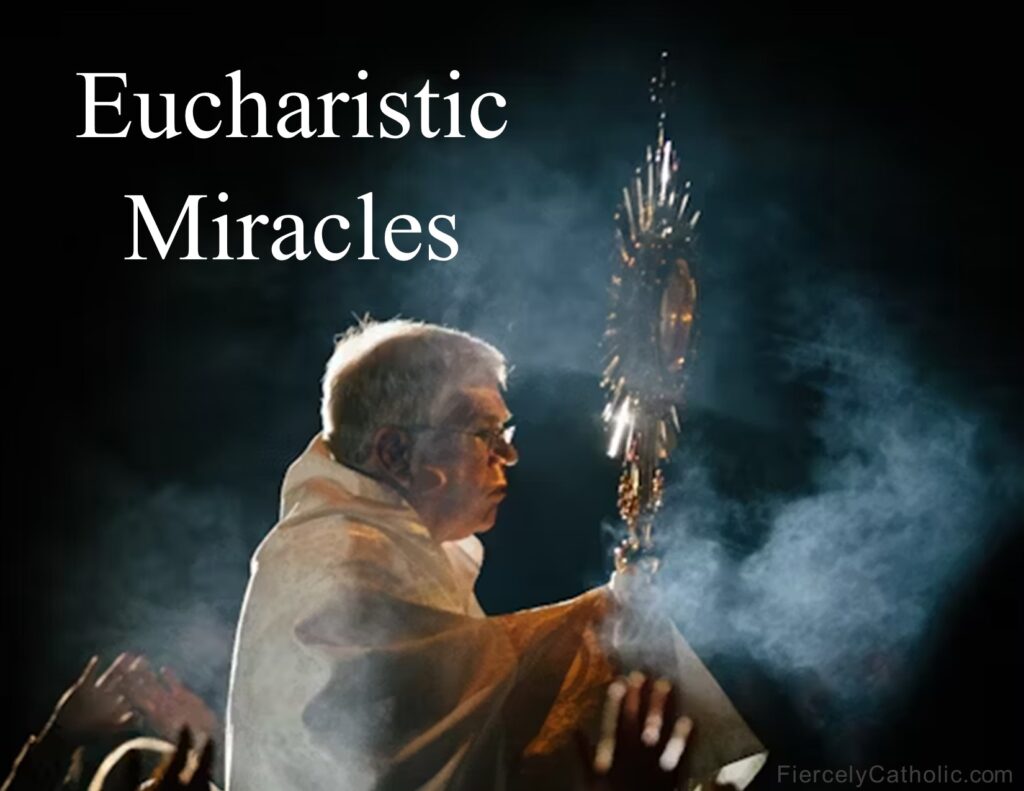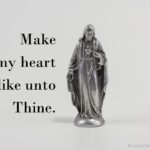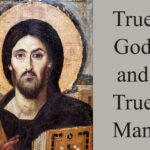
Jesus Christ is truly present in the Eucharist. Although his Body, Blood, Soul and Divinity are usually hidden beneath the appearance of bread and wine, God sometimes allows his presence to be manifested in extraordinary and miraculous ways.
While the bread and wine becoming the living Body, Blood, Soul, and Soul of Jesus Christ by transubstantiation at every Catholic Mass is a miracle in itself, this presence becomes intensified in Eucharistic miracles.
Throughout the history of the Catholic Church, Eucharistic miracles have been documented all over the world. The presence of Jesus Christ has become apparent in a variety of physical manifestations and supernatural experiences.
Human blood or flesh has appeared in the Communion hosts or in the cup at Mass, while other hosts have floated in the air. The Eucharist has healed people or protected them from harm. Invaders have been repelled, and disasters and plagues have been averted.
Eucharistic miracles strengthen the faith of Catholics and confirm their belief in the Real Presence of Jesus. Miraculous events surrounding the Eucharist have even helped some Catholics overcome serious doubts about what the Church teaches about the Eucharist.
Claims of Eucharistic miracles are thoroughly investigated by the Church. Scientific testing and medical analysis verifies true Eucharistic miracles while close examination reveals natural explanations for false claims and debunks hoaxes.
Jesus gives Himself in the Eucharist:
Eucharistic miracles can increase faith:
As they approached the village to which they were going, He gave the impression that He was going on farther. But they urged Him, “Stay with us, for it is nearly evening and the day is almost over.” So He went in to stay with them. And it happened that, while He was with them at table, He took bread, said the blessing, broke it, and gave it to them. With that their eyes were opened and they recognized Him, but He vanished from their sight. Then they said to each other, “Were not our hearts burning [within us] while He spoke to us on the way and opened the scriptures to us?” So they set out at once and returned to Jerusalem where they found gathered together the eleven and those with them who were saying, “The Lord has truly been raised and has appeared to Simon!” Then the two recounted what had taken place on the way and how He was made known to them in the breaking of the bread.
Luke 24: 28-35
A double miracle to increase faith:
Extraordinary shows of God’s power:
I very much hope that during the Year of the Eucharist every diocesan Community will publicly renew its act of faith in Jesus present in the Sacrament of the Altar and will draw inspiration for the whole of its life and pastoral action from this Eucharistic spirituality that emerges so clearly from the Gospel accounts. Christ, indeed, who offered his whole self for the salvation of humanity, chose to perpetuate his self-giving, sacrificial dedication in the sacrament of the Eucharist. For us Christians the Eucharist is our all: it is the centre of our faith and the source of all our spiritual life. This is particularly true for the city of Lanciano, custodian of two Eucharistic miracles which, in addition to being very dear to the faithful of Frentania, make it the destination of many pilgrimages from Italy and the whole world. I would like to recall that when I was the Cardinal of Krakow, I myself visited the Church of St Francis in Lanciano where the relics are preserved of the famous miracle that dates back to the eighth century.
Pope John Paul II, Letter to the Archbishop of Lanciano-Ortona, 4 October 2004
There are many different ways that Eucharistic miracles occur:
Eucharistic miracles happen all over the world:
Miracles that go beyond transubstantiation:
It is by the conversion of the bread and wine into Christ’s body and blood that Christ becomes present in this sacrament. The Church Fathers strongly affirmed the faith of the Church in the efficacy of the Word of Christ and of the action of the Holy Spirit to bring about this conversion. Thus St. John Chrysostom declares: It is not man that causes the things offered to become the Body and Blood of Christ, but He who was crucified for us, Christ Himself. The priest, in the role of Christ, pronounces these words, but their power and grace are God’s. This is my body, He says. This word transforms the things offered. And St. Ambrose says about this conversion: Be convinced that this is not what nature has formed, but what the blessing has consecrated. The power of the blessing prevails over that of nature, because by the blessing nature itself is changed. . . . Could not Christ’s word, which can make from nothing what did not exist, change existing things into what they were not before? It is no less a feat to give things their original nature than to change their nature.
Catechism of the Catholic Church 1375
Miracles that cannot be explained or reproduced:
Eucharistic miracles have been confirmed by science:
The Church rules out false Eucharistic miracles:
The Truth, Goodness, and Beauty of the Catholic Church
Understanding Mary and imitating her faith:
Share this page with friends and family to start a conversation about your faith.
Don’t miss a post. Learn more about the Catholic Church and strengthen your Catholic faith.
Find more Fiercely Catholic video issues here.
Subscribe here.


